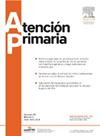初级保健护士管理者对循证实践的看法及其在进一步扩展中的作用:一项定性研究
IF 1.6
4区 医学
Q2 MEDICINE, GENERAL & INTERNAL
引用次数: 0
摘要
目的探讨基层卫生保健护理管理者对循证实践(EBP)的看法及其在进一步推广EBP中的作用。DesignBradshaw的定性描述方法。西班牙巴斯克地区的初级保健中心。参与者为初级保健中心的12名护士管理人员。方法采用半结构化访谈法收集2024年的调查数据,采用定性内容分析进行转录和分析。结果在分析过程中细化了三类。第一个,“围绕EBP的矛盾看法”描述了参与者如何将EBP视为护理的核心,同时又将其视为抽象的,难以实现和实施的东西。第二类,“通往EBP能力的曲折之路”反映了参与者如何理解获得EBP能力不是一个简单的过程,而是取决于每个护士的个人意愿和动机。最后,第三类“EBP实施:谁的责任?”'涵盖了参与者对他们作为护理主管在进一步扩展EBP中的作用的思考,以及对这方面的制度障碍和责任和行动的思考。结论本研究的参与者一致认为EBP是提供高质量医疗服务的必要条件,但同时,他们认为EBP是一种抽象的、难以实施的东西,并且依赖于护士个人的意愿和动机。尽管参与者广泛地描述了进一步实施EBP的组织障碍,但他们在EBP实施中的作用从未被描述为倡导有利于EBP的组织变革,而是在其管理下的护士的层次结构。本文章由计算机程序翻译,如有差异,请以英文原文为准。
Primary healthcare nurse managers’ perceptions in relation to evidence-based practice and their role in further extension: A qualitative study
Objective
To explore the perceptions of primary healthcare nurse managers in relation to evidence based practice (EBP) and their role for further EBP extension.
Design
Bradshaw's qualitative descriptive approach.
Site
Primary Healthcare Centres in the Basque Country, Spain.
Participants
12 nurse managers in Primary Healthcare Centres.
Methods
Data were collected through semi-structured interviews in 2024, transcribed and analysed following qualitative content analysis.
Results
Three categories were elaborated during the analysis. The first one, ‘Somehow contradictory perceptions around EBP’ describes how participants considered EBP at the core of nursing while at the same time perceived it to be something abstract, difficult to achieve and to implement. The second category, ‘The tortuous pathway to EBP competence’ reflects how participants understood that acquiring EBP competence was not a straightforward process, but dependent on individual willingness and motivation of each nurse. Finally, the third category ‘EBP implementation: whose responsibility?’ covers participants’ reflections on their role in further EBP expansion as nursing supervisors along with reflections on institutional barriers and responsibility and action in this regard.
Conclusions
There was a great consensus among participants in this study about EBP being essential to provide quality healthcare but, at the same time, they perceived EBP as something abstract and difficult to implement and dependent on individual nurses’ willingness and motivation. Although participants extensively described organisational barriers for further EBP implementation, their role in EBP implementation was never described as advocating for an organisational change in favour of EBP but down the hierarchy towards the nurses under their management.
求助全文
通过发布文献求助,成功后即可免费获取论文全文。
去求助
来源期刊

Atencion Primaria
医学-医学:内科
CiteScore
2.90
自引率
8.00%
发文量
156
审稿时长
33 days
期刊介绍:
Atención Primaria es una revista que publica trabajos de investigación relativos al ámbito de la atención primaria de salud. Desde el punto de vista conceptual, Atención Primaria asume el nuevo modelo de atención primaria de salud, orientado no sólo a la curación de la enfermedad, sino también a su prevención y a la promoción de la salud, tanto en el plano individual como en el de la familia y la comunidad. En estos nuevos aspectos que definen el modelo de atención primaria de salud es en los que se centran los trabajos de investigación que publica Atención Primaria, la primera revista de originales española creada para recoger y difundir la producción científica realizada desde los centros de atención primaria de salud sobre cuestiones como protocolización de la asistencia, programas de prevención, seguimiento y control de pacientes crónicos, organización y gestión de la asistencia primaria, entre otros.
 求助内容:
求助内容: 应助结果提醒方式:
应助结果提醒方式:


